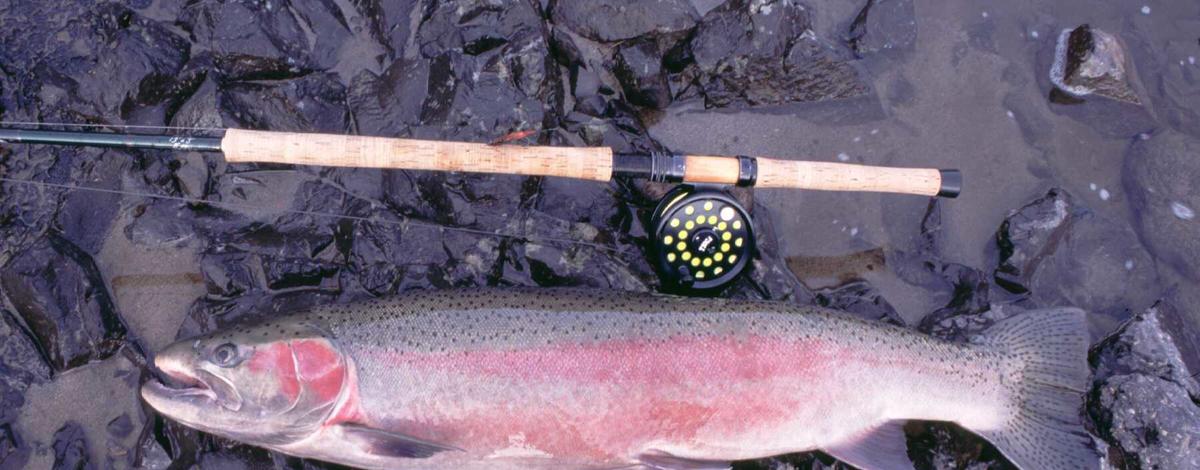The Idaho Fish and Game Commission suspended the fall steelhead season effective midnight December 7, 2018. The decision was made after careful thought in response to a threatened lawsuit over the federal government’s failure to process Idaho’s Endangered Species Act permit for the steelhead fishery. Steelhead fishing will remain closed in 2019 until further notice.
Having been involved in steelhead management as a professional biologist, and being a steelhead fisherman for over 40 years, I’m well aware how important steelhead fishing is to Idaho anglers and local economies. The loss of that opportunity, even temporarily, due to a lawsuit and unprocessed permit is truly regrettable.
On October 9, Idaho received a Notice of Intent (NOI) to file a lawsuit from six organizations, including The Conservation Angler, Idaho Rivers United, Friends of the Clearwater, Wild Fish Conservancy, Wild Salmon Rivers and Snake River Waterkeeper. The groups said they would sue Idaho for allowing a sport fishery for hatchery steelhead. Despite harvest of wild steelhead being illegal in Idaho, any catch-and-release of wild steelhead requires a permit from the federal government because they are listed as Threatened under the Endangered Species Act.
Fish and Game attempted to reach a settlement where some fishing on hatchery steelhead would remain open in Idaho, with little risk to wild steelhead, however, the groups that filed the notice of their intent to sue rejected this offer.
For whatever reason, these groups singled out Idaho for their lawsuit threat, and because there is not a biological basis to close steelhead fisheries in the Snake River basin, fisheries in the Snake River boundary waters remain open to anglers licensed in Oregon and Washington in compliance with those states’ rules, and tribal steelhead fisheries in Idaho will also continue.
Idaho has long been a leader in wild steelhead conservation. In total over 4,200 miles of the 5,000 miles of wild steelhead spawning and rearing habitat in Idaho is regularly closed to steelhead fishing. This includes areas such as the Middle Fork and South Fork Salmon rivers and the Selway and Lochsa rivers.
Fish and Game uses the best-available science to estimate the total number of wild steelhead that may be killed during the fishery for hatchery steelhead, and we manage the fisheries to keep the mortality rate low. The majority of impacts on the wild summer run steelhead occur in downriver fisheries. Idaho sport fisheries result in the unintentional mortality of about 3 percent of the wild steelhead entering Idaho. Federal and state agency fishery scientists agree this level of handling and mortality does not jeopardize wild steelhead populations.
Idaho’s permit for the hatchery steelhead fishery has indeed lapsed. This is not a result of the state failing to play by the rules or disregarding the needs of wild steelhead. Idaho received its first permit for incidental take of ESA listed fish in 1993 and has complied with federal requirements since then. In 2010, Idaho submitted paperwork for timely renewal of the permit for the hatchery steelhead fisheries.
Idaho has continued to conduct steelhead fisheries consistent with this plan and in full awareness of the permitting agencies. Since steelhead listing in 1997, state and federal agency scientific reviews have found Idaho’s management frameworks for hatchery steelhead fisheries do not jeopardize wild steelhead populations.
NOAA recently published Idaho’s Steelhead Fishery Monitoring and Evaluation Plan for a 30-day public comment period. This is an important milestone in the permit renewal process and our hope is that we will receive the permit in time to reopen a portion the spring fishery.
Fish and Game and its commission are committed to the recovery of wild steelhead, but closure of the fishery is not based on a conservation need. It is unfortunate these groups are attempting to portray the lack of a permit as a lack of concern for wild steelhead — a strategy that results in lost opportunities for Idaho anglers and communities.
The commission did not want to go to federal court, lose on a technicality because the federal agency dropped the ball on permit renewal, and have our anglers’ and hunters’ license dollars pay bills for advocacy-group lawyers instead of conservation.

